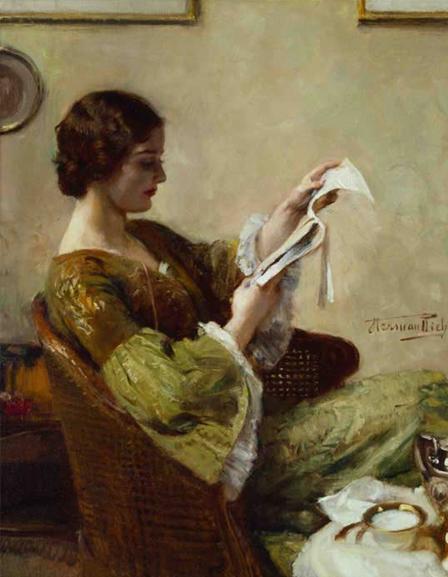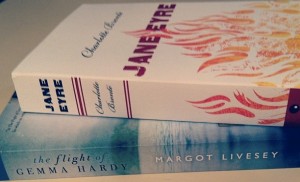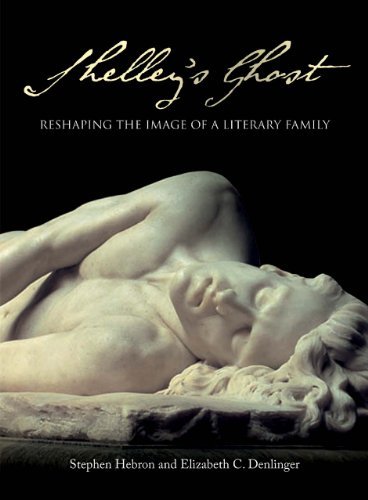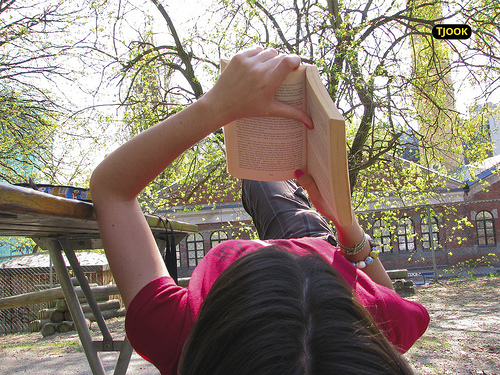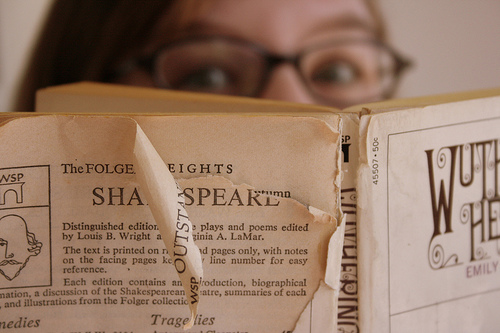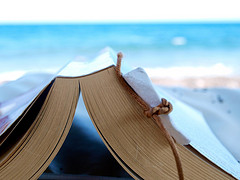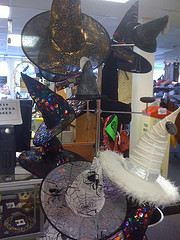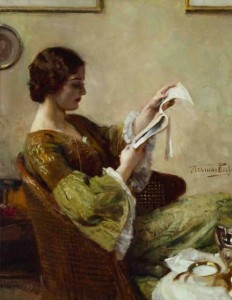 Saturday Reads is a weekly feature sharing bookish links from news, blogs, and Twitter that made up my Saturday reading.
Saturday Reads is a weekly feature sharing bookish links from news, blogs, and Twitter that made up my Saturday reading.
I spent a lot of time at my two favorite newspapers’ book sections on my iPhone this morning. The Guardian has a great article by Margaret Atwood reflecting on [amazon_link id=”038549081X” target=”_blank” ]The Handmaid’s Tale[/amazon_link] some 26 years after it was published. A commenter quoted Rick Santorum, underscoring just why Atwood’s book is as important as ever. Here’s my review of The Handmaid’s Tale from my archives, if you’re interested.
The New York Times has a great review of [amazon_link id=”0062064223″ target=”_blank” ]The Flight of Gemma Hardy[/amazon_link], which I will soon be reading for TLC Book Tours (very excited!).
The publishers also sent me a pretty copy of [amazon_link id=”B004CFA9Y6″ target=”_blank” ]Jane Eyre[/amazon_link], which Margot Livesy’s book is based on. I can’t wait to reread that one. It’s got deckle-edged pages and the paper cover is textured. I am very much in favor of this new trend in making classics look cool with bold, creative covers. As much as I love old paintings, I think they’re becoming a little played as book covers (she said, knowing she used one on the cover of her own book—in my defense, I don’t have the budget to pay a graphic artist to design one). I think winter is a good time to read gothic classics.
The New York Times also has good reviews of new nonfiction, including Ian Donaldson’s new biography [amazon_link id=”0198129769″ target=”_blank” ]Ben Jonson: A Life[/amazon_link], John Matteson’s new biography [amazon_link id=”0393068056″ target=”_blank” ]The Lives of Margaret Fuller[/amazon_link], and Richard W. Bailey‘s new book [amazon_link id=”019517934X” target=”_blank” ]Speaking American[/amazon_link].
I also really liked this feature on Edith Wharton as New York will celebrate her 150th birthday on Tuesday. Nice link to [amazon_link id=”B005Q1W10A” target=”_blank” ]Downton Abbey[/amazon_link] and discussion of Wharton’s own novel [amazon_link id=”0140232028″ target=”_blank” ]The Buccaneers[/amazon_link].
Of course, Charles Dickens also celebrates a big (200th) birthday this year, and The New York Times has a fun feature on Dickens. Favorite quote? “The fact is that Charles Dickens was as Dickensian as the most outrageous of his characters, and he was happy to think so, too.”
I’m think anyone interested in New York might find the new book [amazon_link id=”067964332X” target=”_blank” ]New York Diaries: 1609-2000[/amazon_link] intriguing. It sounds like the book has a variety of entries, from the “famous, the infamous, and the unknown in New York.” The Times reviewed this one, too, of course.
Flavorwire had some interesting posts, too. I particularly enjoyed “The Fascinating Inspirations Behind Beloved Children’s Books” and “10 Cult Literary Traditions for Truly Die-Hard Fans.”
Finally, I enjoyed this reflection on A Wrinkle in Time at Forever Young Adult. [amazon_link id=”0312367546″ target=”_blank” ]A Wrinkle in Time[/amazon_link] will be 50 this year. Can you believe it?
